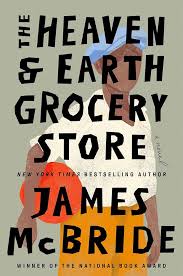Chapter 22: Without a Song
byChapter 22: Without a Song begins with the weight of closure bearing heavily on Moshe’s shoulders. Packing up the Heaven & Earth Grocery Store proved more painful than he anticipated, triggering memories long buried. Discovering the butter barrel that Chona once used to calm him, now filled with toys for neighborhood children, forced him to confront not only her absence but the gaping silence left behind. Moshe, overwhelmed by emotion, broke down quietly while Nate and Addie respectfully kept their distance, their own burdens stitched into the fabric of their silence. The grief was not just his—it belonged to all of them in different shapes and shades. Though Moshe tried to bury his sorrow beneath the act of sorting and organizing, every object in that basement whispered Chona’s presence, turning the chore into a sacred farewell.
Pain lingered not just in memory but in Moshe’s body—a chest pain that halted him mid-movement, as if his grief had taken physical shape. Addie noticed but didn’t approach; touch had always been Chona’s way, not his. That contrast between them reminded him how his wife embraced life with gestures that defied societal lines, whether through hugs, playful touches, or lifting a crying child without hesitation. Her defiance wasn’t loud, but it was profound—she treated every human as worthy of warmth, no matter their race or station. In her worldview, kindness wasn’t optional; it was the rule. That worldview was fading from the store as it was packed away, just as it seemed to be vanishing from the town around them. Without Chona, Moshe saw himself not as a builder of bridges through music and theatre, but as a man left without his melody.
Although Moshe tried to power through the cleanup, emotional exhaustion returned like a tide. Conversations with Nate and Addie remained brief and cautious. He asked about Dodo, whose absence was deeply felt, but words around the boy’s institutionalization carried too much weight. Addie assured him a visit was being planned, but Moshe, trying to maintain composure, offered to arrange it himself. That act—his offer—carried a kind of desperation, a need to remain involved, to still matter to the ones who had mattered to Chona. Yet what stung was Nate’s increasing quiet, his reticence more obvious each day. It wasn’t just grief—it was tension that hadn’t been voiced.
Into that silence arrived Isaac and Malachi, unexpected but deeply welcome. Their presence momentarily lifted Moshe’s spirits, bringing laughter and memory back to life, even if only briefly. Malachi’s surprise arrival with a tiny pair of leather baby pants etched with the Star of David broke the tension, prompting tears and warmth to wash over the room. The gift was absurd, endearing, and perfectly in character. Their reunion in the back room over glasses of hot tea reflected old times, but beneath their exchange was the unspoken truth that the world had changed. Malachi’s comment about “trouble back home” hinted at dangers unfolding in Europe—a warning Moshe couldn’t afford to ignore. Beneath the tea and humor, there was unease and a looming fear about the world’s shifting balance.
Isaac, more serious than ever, took it upon himself to speak with Nate and Addie—his concern about Chona’s death and Doc Roberts’ role in it surfacing. Yet Nate held firm, rejecting Isaac’s offer of money and reminding him of the difference between transactional help and genuine human decency. That refusal was deeply rooted in experience. For Nate, laws meant little if they could be rewritten at a moment’s notice by those in power. His loyalty lay not with money or influence, but with Moshe, the man who had shown kindness and trust without expectation. Addie, too, quietly reinforced this loyalty—not through defiance, but through steadfast dignity. Together, they embodied a resistance rooted in lived truth, not courtroom maneuvering.
As Isaac pressed, trying to justify the need for testimony or legal intervention, Nate’s resistance held. He didn’t trust the system to protect Dodo, nor did he believe in temporary solutions built on privilege. His insight, born of lived discrimination, reminded Isaac of an uncomfortable truth: justice was rarely blind when it came to race. Nate’s message was clear—Dodo didn’t need saving through white benefactors, but through the quiet strength of a community that had already endured too much. Isaac, unused to being challenged, finally understood that his money could not repair what Moshe and Chona had given freely: dignity, belief, and protection.
Ultimately, Moshe’s grief was not just about the loss of his wife, but the unraveling of a life built around connection and courage. Without Chona, he felt like a man stripped of his song, his stage quieted, and his rhythm lost. Yet in the support of friends like Nate, Addie, Isaac, and Malachi, there remained a flicker of what Chona had always known: community was not built on transactions or titles—it was built on love expressed in small, defiant acts. As the Heaven & Earth Grocery Store emptied, what remained was not shelves and barrels, but memory and meaning—remnants of a life that sang even in its silence.


